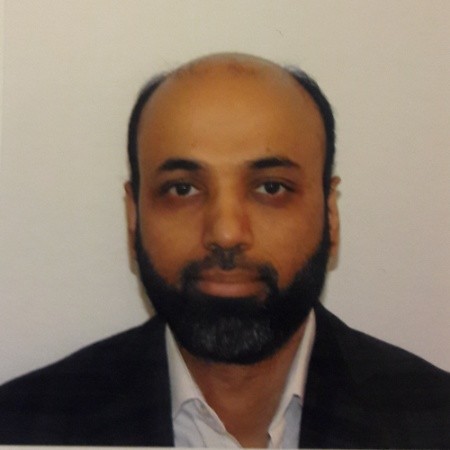
One thing we all have in common, no matter where we come from on this planet, is that we have only 24 hours to each day. There’s no getting around it. Yet, when looking at different cultures and the ways in which they hold time, it can seem as though, sometimes, that’s not the case.
Several years ago, a couple colleagues and I co-led an unforgettable Leadership Retreat to Kenya. Among several once in a lifetime experiences we planned, was a short camping trip that included rock climbing in Hell’s Gate National Park, hiking up Mount Longonot (a dormant volcano), and visiting an island wildlife preserve where we literally walked alongside Giraffes, Zebras and Gazelles!
We had hired a local guide, Njenga, and his team to take us on this adventure. And as you can imagine, the seven of us were up bright and early to be ready for our 10:00 am pickup time. Well, 10:00 came and went. 10:15. 10:30. No sign of Njenga. We tried calling him. No answer. 10:45, nothing. The three of us Retreat Leaders were really beginning to panic. We were embarrassed, apologetic, and started scrambling about how to make it up to our guests.
As we were frantically creating plan B on the fly, this rickety white van rolls up, clouds of road dust in its wake. Out jumps Njenga with a HUGE smile on his face, saying “Hi! Ready to go!?” No indication that he realized he was over an hour late! How could he be so late and not be apologetic? After all, we were his customers and he committed to picking us up at 10:00 am. We were frustrated, to say the least.
In the end, it all worked out and we had the most amazing experience together!
What I learned later, was that Kenyans are among the cultures that hold time and scheduling very loosely. They, along with other countries such as Saudi Arabia, India and Nigeria, are much more fluid and adaptable with their schedules. Flexibility is highly valued.
Countries such as Germany, Switzerland and Japan tend to be on the other end of the spectrum. They’re much more linear-time based, with a focus on promptness, organization and scheduling.
Here in the US, folks also tend to be more linear about time; sequential and deadline focused. Though not quite as much as the countries listed directly above. It’s all relative.
There are many factors for variations in countries, including things like traffic volume, cultural values, political unrest, severity of weather events. They all contribute to how well a culture deals with unforeseen forces, and how, sometimes, flexibility isn’t a choice, but a necessity.
If you’re working in corporate USA and originally from another country, it’s especially important to build awareness around your own habits and preferences, and to see how they’re working for you here. Even within the grander US culture, different corporations can have their own time-holding behaviors too.
Here are some inquiries for building awareness and suggestions for aligning yourself with expectations:
- Explore your own relationship with time and scheduling. Take note of your habits. Do you tend to be more flexible and fluid when you make an appointment or agree to a deadline? Or are you precise and prompt, and expect that of others too?Do you tend to show up after everyone else has already arrived and need to catch up? Are you the first one in the room, getting annoyed waiting for others to gather? What adjustments can you make to better align with those around you and decrease any stress or awkwardness caused?
- Observe and increase your awareness of the specific corporate culture you’re a part of. How do others treat appointments and deadlines? If you’re unclear from what you witness, then ask a few colleagues.What are the expectations and assumptions people make if they aren’t met?
- If you’re going to be late to a meeting, do you call/text/email ahead? It’s always best to be right on time, or even a bit early, especially for something more formal or when you don’t know the people involved. Even if you’re only going to be 5 mins late, it’s a good idea to reach out and let someone know.
- How are you with deadlines? As a general rule, the expectation is that deadlines should be met as agreed upon.Of course, unforeseen challenges can sometimes prevent satisfying that agreement. What’s most important if you can’t meet a deadline is communication, as far in advance as possible, to renegotiate and allow for alternative planning.
The key for all of us is awareness and a willingness to adjust our style… no matter where we find ourselves in the world.
 Srithika Thodur Madapusi, a Senior Leadership Development Manager, came to the US to work with Cognizant Technology Solutions when her husband was transferred here for his work. Although she’s now returned to India, she spent two years working here in their Academy Division. That’s where I met and got to know Srithika, while we developed and delivered the first year of the long-running Elevate Coaching program. Though we’ve never actually met in person (yet), I’m looking forward to that changing someday when I visit India!
Srithika Thodur Madapusi, a Senior Leadership Development Manager, came to the US to work with Cognizant Technology Solutions when her husband was transferred here for his work. Although she’s now returned to India, she spent two years working here in their Academy Division. That’s where I met and got to know Srithika, while we developed and delivered the first year of the long-running Elevate Coaching program. Though we’ve never actually met in person (yet), I’m looking forward to that changing someday when I visit India!


 Bala Thillainathan, originally from India, is a Technical Lead at Stinger Ghaffarian Technologies. He’s been in the U.S. for 20 years now, having initially come here for work. “It just kind of happened!”, he says.
Bala Thillainathan, originally from India, is a Technical Lead at Stinger Ghaffarian Technologies. He’s been in the U.S. for 20 years now, having initially come here for work. “It just kind of happened!”, he says.
 Yegor Filonov came to the U.S. from Russia 13 years ago in the aftermath of perestroika, a political reformation movement within the Communist Party of the Soviet Union. He’s now a Business Systems Analyst in the Greater Boston area.
Yegor Filonov came to the U.S. from Russia 13 years ago in the aftermath of perestroika, a political reformation movement within the Communist Party of the Soviet Union. He’s now a Business Systems Analyst in the Greater Boston area.
 Shalini Mohan, originally from India, has been in the US for 7 years and she’s an Implementation Lead living in Massachusetts. When asked what she enjoys most about being here, she says “the people and the work culture”, and having never experienced four seasons before, she “found the weather most surprising!”
Shalini Mohan, originally from India, has been in the US for 7 years and she’s an Implementation Lead living in Massachusetts. When asked what she enjoys most about being here, she says “the people and the work culture”, and having never experienced four seasons before, she “found the weather most surprising!”